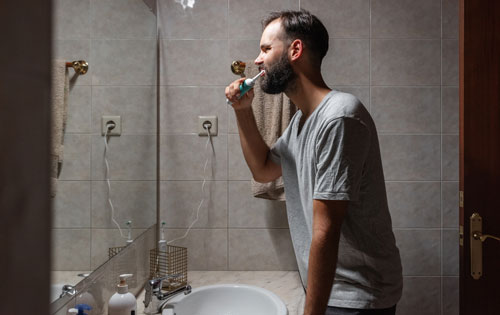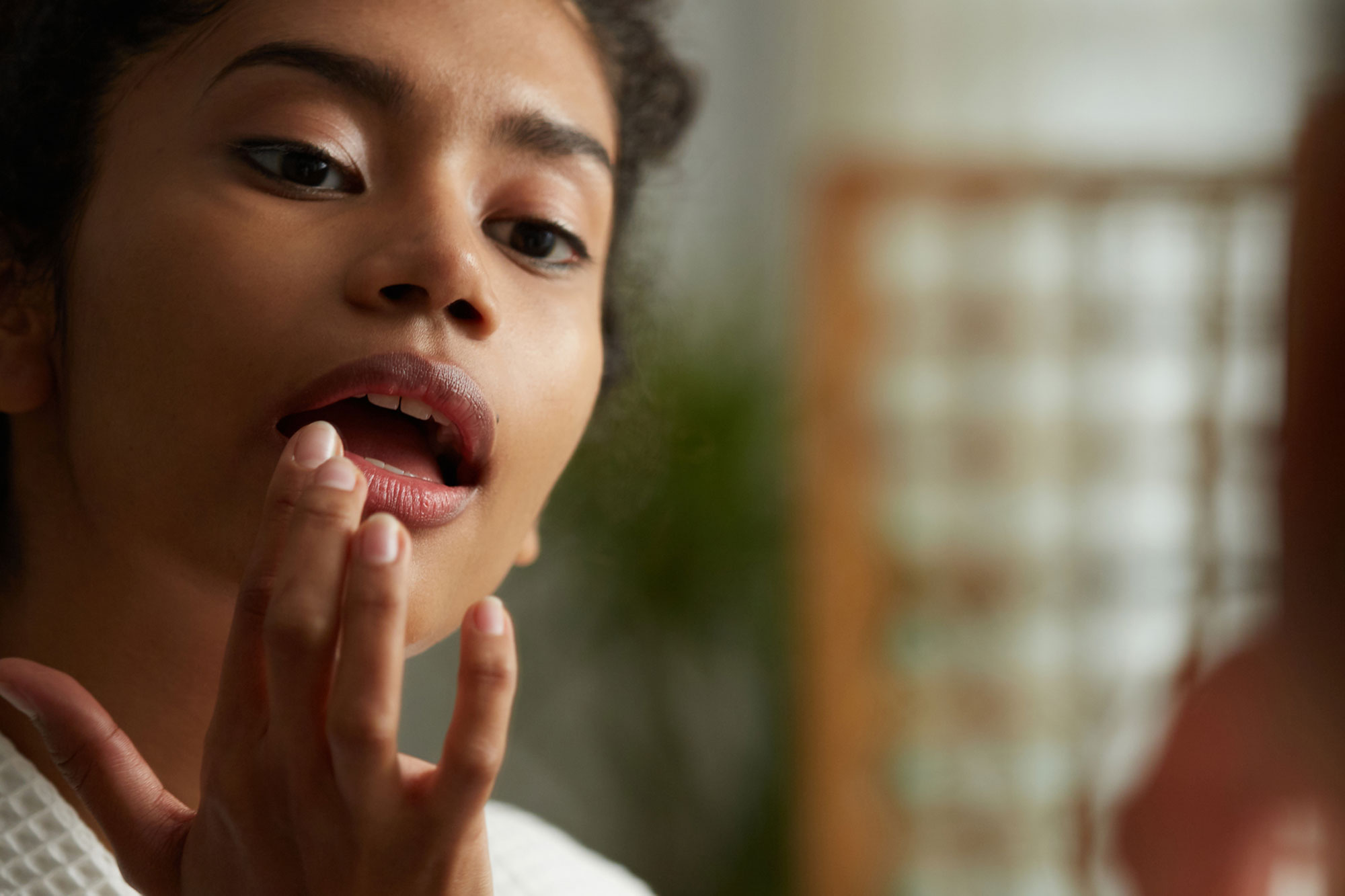If chapped lips appear every winter like clockwork, the good news is that you’re not alone. The bad news? They can be tough to avoid. That’s partly because of the lips themselves, which weren’t really designed with howling winds and chilly temps in mind. “Unlike the skin on the rest of your body, the lips don’t contain any oil glands,” says Melanie Palm, M.D., a board-certified dermatologist in San Diego, CA. “This means the skin on your lips is more thin, sensitive, and susceptible to dryness than other parts of the body.”
That said, while they’re more common in the colder months, chapped lips can happen any time of year, depending on your skincare habits and other factors. Fortunately, “chapped lips are common and can be easily treated with an emollient lip balm or treatment,” Dr. Palm says. If you have severely chapped lips, which means the skin is cracking at the corners of your lips, however, she recommends seeing a dermatologist.
If you don’t see any improvement, however, you might be inadvertently sabotaging yourself with certain habits, be it scrubbing away flakes or licking your lips. (The myth that some lip balms make your chapped lips worse — or that you can become “addicted” to them — is just that.) With that in mind, here’s what might be holding up your healing.
Meet the Experts
Melanie Palm, M.D., is a board-certified dermatologist in San Diego, CA.
1. Licking your lips

Desperate times call for desperate measures — and if you don’t have a lip balm on-hand, you might be tempted to lick your lips. While it might feel good for a few moments, “saliva can strip the lips of moisture,” says Dr. Palm. You’re better off doing nothing until you can apply a rich, velvety lip balm, as frustrating as it may be.
2. Applying certain actives
Love your skincare actives? Same. However, certain ingredients should be applied with caution. “Avoid putting retinol, alpha hydroxy acids, beta hydroxy acids, and other exfoliant actives on or around the lip area,” says Dr. Palm. Even if you’re not slathering them onto your lips, the ingredients may migrate and “can dry out the skin on your lips,” she says.
3. Using lip plumpers
While lip balms shouldn’t cause any issues, other lip products can — namely, anything that bills “plumping” as a benefit. If your lips are already compromised, “certain ingredients like menthol and camphor, which are sometimes found in lip plumpers or other skincare products, can further irritate and dry out your lips,” Dr. Palm says. She recommends eyeing the ingredient list and making sure you’re avoiding methanol, alcohols, essential oils, and fragrance, which may further irritate and dry out your lips.
4. Brushing with flavored toothpaste

If you love yourself a flavored toothpaste, you could be giving yourself contact dermatitis — in other words, a reaction to something your lips came into contact with. While this usually appears as a rash or dryness on the skin, it manifests as dry, chapped, or even sore lips, and can often be caused by toothpaste. “Tartar-control and whitening formulations, as well as cinnamon-flavored toothpaste and gum, can be a common cause of contact dermatitis,” ultimately leading to dry lips, says Dr. Palm. If you just started using something different in your oral hygiene routine, consider this your cue to switch back.
5. Skipping sunscreen
If you have chapped lips that don’t quit even with frequent balm applications, a visit to your derm might be in order. “In patients who have had significant sun exposure, precancerous skin spots can look like dry areas of skin,” says Dr. Palm. “If there’s a persistent dry area on the lip, and they may need to be checked by a dermatologist to rule out a pre-cancer spot, called an actinic keratosis.” Left unchecked, actinic keratosis can evolve into squamous cell carcinoma, which can in turn metastasize if you don’t catch it. (That said, let this serve as yet another reminder to get yearly skin checks.) On that note, if you’re planning to spend the day outdoors, it’s worth springing for a lip balm that offers built-in SPF. “The lips are an often forgotten area for sunscreen application, and it’s really important to protect them,” she says.
6. Using a lip scrub
While you might be tempted to exfoliate your lips — understandably, if you want to slough away flakes and create a smooth surface — it’s best to skip the scrub if your lips are already chapped. “Exfoliating skin that is already dry can lead to additional inflammation and worsen dryness overall,” says Dr. Palm. Instead, she recommends focusing on keeping the lips moisturized and properly hydrated, which will help repair their barrier.
We only recommend products we have independently researched, tested, and loved. If you purchase a product found through our links, Sunday Edit may earn an affiliate commission.







